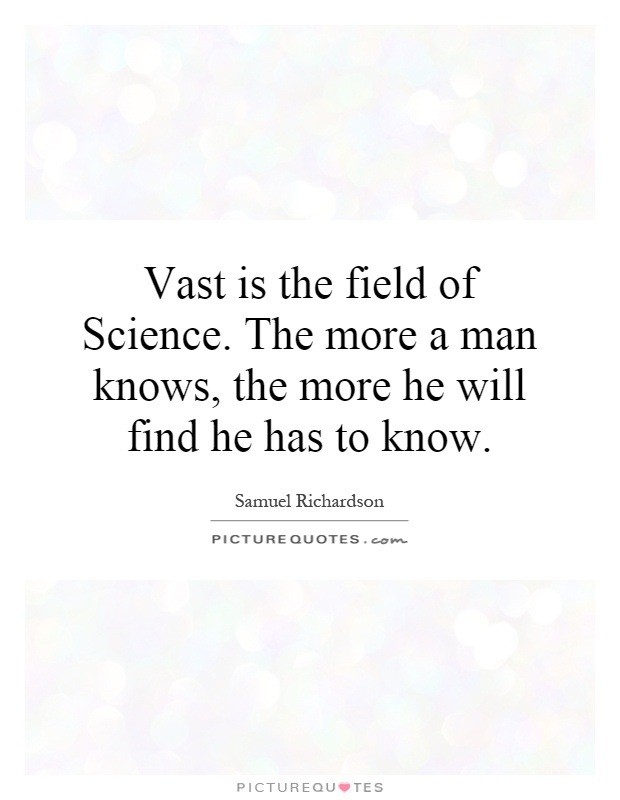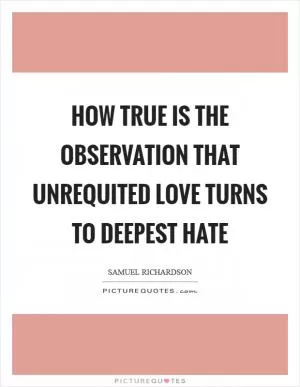Vast is the field of Science. The more a man knows, the more he will find he has to know

Vast is the field of Science. The more a man knows, the more he will find he has to know
Samuel Richardson, the renowned English writer and printer, is often credited with being one of the pioneers of the modern novel. His works, particularly his epistolary novels such as "Pamela" and "Clarissa," are considered masterpieces of the 18th-century literature. Richardson's writing style and attention to detail have earned him a place among the greatest literary figures of his time.In the context of the quote "Vast is the field of Science. The more a man knows, the more he will find he has to know," it can be said that Richardson's works embody this sentiment. His novels are rich in complexity and depth, delving into the intricacies of human relationships, emotions, and societal norms. The more one delves into Richardson's works, the more they will find there is to uncover and explore.
Richardson's novels are not just simple stories; they are intricate tapestries of human experience, woven together with meticulous detail and profound insight. His characters are multi-dimensional, with flaws and virtues that make them relatable and compelling. Through his writing, Richardson explores the complexities of human nature, delving into themes of love, morality, and social class.
Just as the field of science is vast and ever-expanding, so too is the world of Samuel Richardson's novels. The more one reads and studies his works, the more they will discover the layers of meaning and nuance that lie beneath the surface. Richardson's novels are not just entertainment; they are profound reflections on the human condition, offering insights into the complexities of life and relationships.












 Friendship Quotes
Friendship Quotes Love Quotes
Love Quotes Life Quotes
Life Quotes Funny Quotes
Funny Quotes Motivational Quotes
Motivational Quotes Inspirational Quotes
Inspirational Quotes